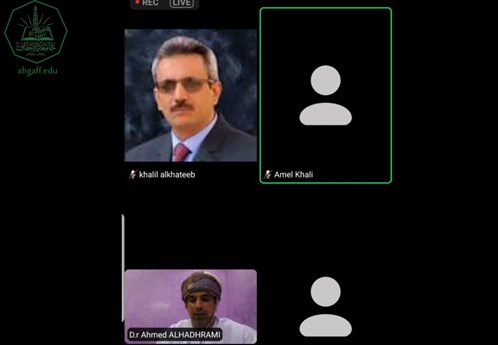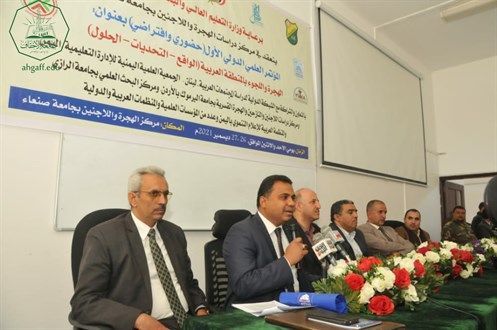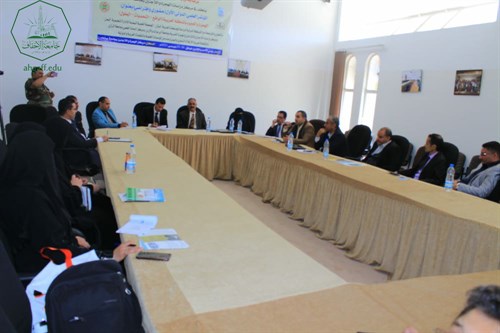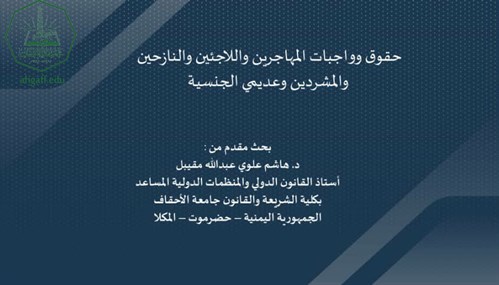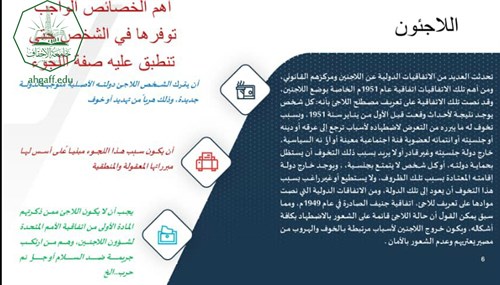Al-Ahgaff University participates in the first international scientific conference on “Migration and Asylum in the Arab Region... Reality, Challenges and Solutions”
- 27/12/2021
- University News
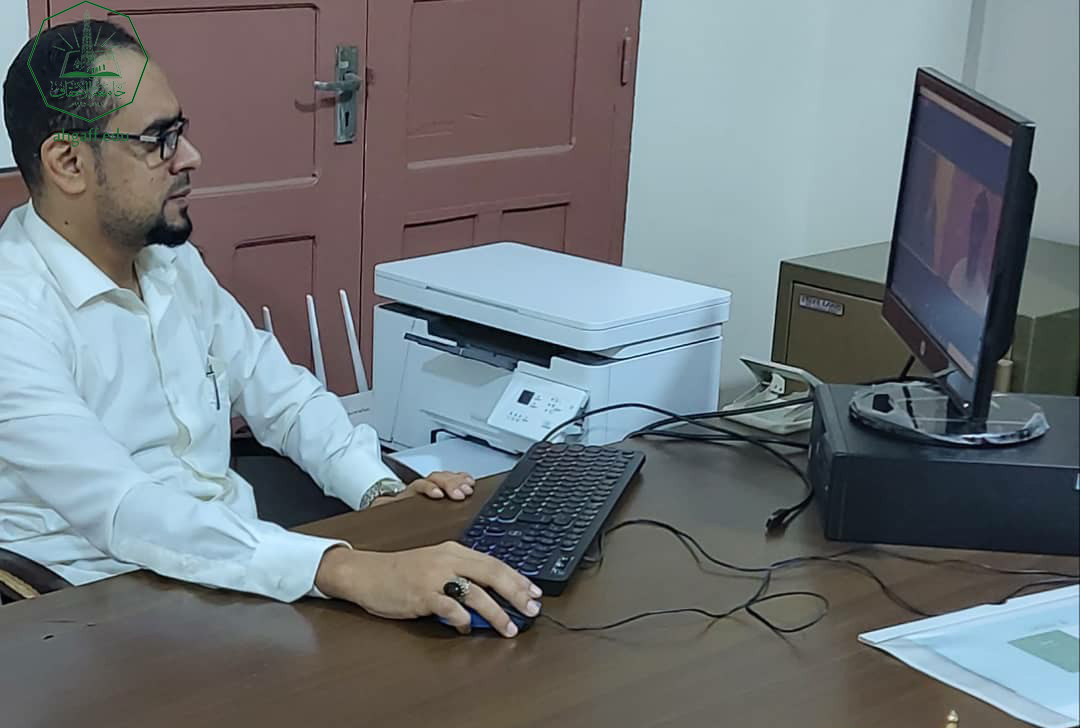
Follow-up / December 26, 2021 / University media
Al-Ahgaff University participated in the first international scientific conference on “Migration and Asylum in the Arab Region: Reality, Challenges and Solutions,” which was held in Sana’a and organized by the International Network for the Study of Arab Societies in Lebanon, in partnership with the Arab Association for Educational Administration, the Center for Migration and Refugees at Sana’a University and international organizations. The conference aims to shed light on the volume of migrants, refugees, stateless persons and homeless persons in the Arab countries.
The university participated in the conference virtually via the Zoom program, represented by the researcher Dr. Hashem Alawi Moqibel, with a research paper entitled “The Rights and Duties of Migrants, Refugees, Displaced Persons, the Homeless and Stateless Persons.”
The researcher pointed out in his research paper to shed light on the statement of the rights and duties of migrants, refugees, displaced persons, homeless persons and stateless persons, with a statement of the similarities and differences between these names by presenting their definitions precisely and determining the implications of this in light of contemporary challenges based on the Fourth Geneva Convention of 1949 and the 1951 Convention, and through the Special Protocol of 1967 to the work of the United Nations High Commissioner and other agreements and competent authorities, in addition to what this differentiation provides of knowledge enrichment for societal awareness regarding the development of the concepts of migration and distinguishing them from what is suspected to achieve a clear vision of migration and asylum and whatever related to them.
The researcher recommended the necessity of continuity of permanent work by the competent authorities to improve and develop international agreements related to these groups, in light of the continuous increase of their members.
He also recommended the necessity of obligating the signatory states to these conventions to implement all the commitments stipulated in them that establish the rights of these groups. While striving to spread and strengthen the humanitarian aspect among the international community, and trying to improve the treatment of these groups by the host countries, and to deal with them in a humane manner away from exploitation.
It is noteworthy that the conference will discuss in two days 47 research papers presented by 61 researchers from 11 countries distributed on 11 axes represented in “policies and legislation, rights and duties, causes and effects of migration, asylum and displacement on countries, the effects of global epidemics, wars and crises on them, ways of integrating them into host societies, and the challenges that face governments, local and international agencies and organizations face toward these groups, and the proposed solutions and remedies.”
